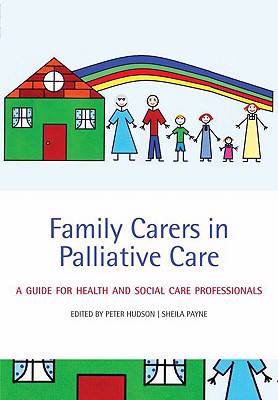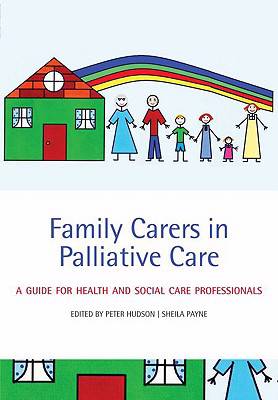
Bedankt voor het vertrouwen het afgelopen jaar! Om jou te bedanken bieden we GRATIS verzending (in België) aan op alles gedurende de hele maand januari.
- Afhalen na 1 uur in een winkel met voorraad
- Gratis thuislevering in België
- Ruim aanbod met 7 miljoen producten
Bedankt voor het vertrouwen het afgelopen jaar! Om jou te bedanken bieden we GRATIS verzending (in België) aan op alles gedurende de hele maand januari.
- Afhalen na 1 uur in een winkel met voorraad
- Gratis thuislevering in België
- Ruim aanbod met 7 miljoen producten
Zoeken
Family Carers in Palliative Care
A Guide for Health and Social Care Professionals
Peter Hudson
Paperback | Engels
€ 74,45
+ 148 punten
Omschrijving
Support for the family is a key component of palliative care practice and philosophy, with both patient and family construed as the 'unit of care'. However, there is not always formal acknowledgement of the importance of the family carer role, or that of friends, neighbours and other
non-professional, informal carers. Consequently, health and social care professionals find carer support work particularly challenging. Symptom management, personal care, and administering of medications are just some of the tasks taken on by this group of non-professionals, and the impact of this
role can have negative emotional, physical, financial and social implications on the care-giver. Furthermore, family carers consistently report unmet needs, and there has been a lack of intervention studies aimed at improving carer support. This book therefore provides an evidence-based, practical guide to enable health and social care professionals to assess and respond to family carer needs. It also explores the wider sociological, policy, and research issues related to family carers and palliative care.
non-professional, informal carers. Consequently, health and social care professionals find carer support work particularly challenging. Symptom management, personal care, and administering of medications are just some of the tasks taken on by this group of non-professionals, and the impact of this
role can have negative emotional, physical, financial and social implications on the care-giver. Furthermore, family carers consistently report unmet needs, and there has been a lack of intervention studies aimed at improving carer support. This book therefore provides an evidence-based, practical guide to enable health and social care professionals to assess and respond to family carer needs. It also explores the wider sociological, policy, and research issues related to family carers and palliative care.
Specificaties
Betrokkenen
- Auteur(s):
- Uitgeverij:
Inhoud
- Aantal bladzijden:
- 328
- Taal:
- Engels
Eigenschappen
- Productcode (EAN):
- 9780199216901
- Verschijningsdatum:
- 1/01/2009
- Uitvoering:
- Paperback
- Formaat:
- Trade paperback (VS)
- Afmetingen:
- 231 mm x 155 mm
- Gewicht:
- 512 g

Alleen bij Standaard Boekhandel
+ 148 punten op je klantenkaart van Standaard Boekhandel
Beoordelingen
We publiceren alleen reviews die voldoen aan de voorwaarden voor reviews. Bekijk onze voorwaarden voor reviews.












